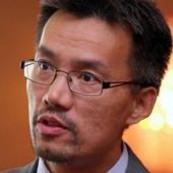
|
Events |
Seminar
Swedish electricity industry: future and challenges

Professor TANG Ou
Abstract
Energy policy has a vital impact on the investment in renewables and on the decommissioning of traditional ones. Sweden aims to expand the renewable electricity production and subsequently to reduce CO2 emissions. To achieve this, the Swedish Energy Agency issues electricity certificates as an incentive. However, the price issues, together with the intermittent availability of renewable energy sources and the uncertainty of future fuel costs, will significantly affect the economic performance of the electricity producers. It is only after understanding the interaction of those factors that we can define companies’ business models for achieving a sustainable development in the electricity sector. This presentation thus first aims to apply a system dynamics approach to integrate both strategic decisions such as capacity expansion/decommission, and operational features such as randomness and seasonal factors in electricity production. The model highlights the complex and nonlinear interaction of important factors in the electricity sector. On the other hand, decommissioning nuclear power plants is a long process not least caused by the substantial investments and consequently sunk costs in the plants. Thus, from a market perspective the increase in intermittent power sources means that nuclear needs to investigate other revenue streams. As the expectation of the future electric vehicles market, as well as the increased interest in hydrogen for other applications, producing hydrogen has become a potential source of income, particularly when surplus electricity exists. The second aim of this presentation is studying the feasibility of investing in hydrogen production using Swedish nuclear power as a background.
The study results indicate that the energy policy should not be introduced in an isolated manner, but rather need to incorporate the incentives of renewables with other decisions such as nuclear decommission. Additionally, this study predicts an upcoming increase in electricity price, as well as a more volatile price after the capacity profile has been changed and dominated by hydro, biomass and wind. This study provides guidelines for policy makers and managers to make better-informed decisions for a healthy development of their businesses as well as of the entire electricity sector.
Short Bio
Ou Tang is Professor of Production Economics at Linköping University in Sweden. His aim of the research is threefold: first to identify and document the operations problems in production systems through industrial survey and case investigation, second to develop analytical models to understand, compare and analyse different production processes, and third to propose managerial principles for improving system performances. His principal research interests lie in the field of operations and supply chain management.
| Venue | HW8-28 |
|---|---|
| Speakers | Professor TANG Ou |
| Date | November 26, 2018 (Monday) |
| Time | 3:30pm–5:00pm |

